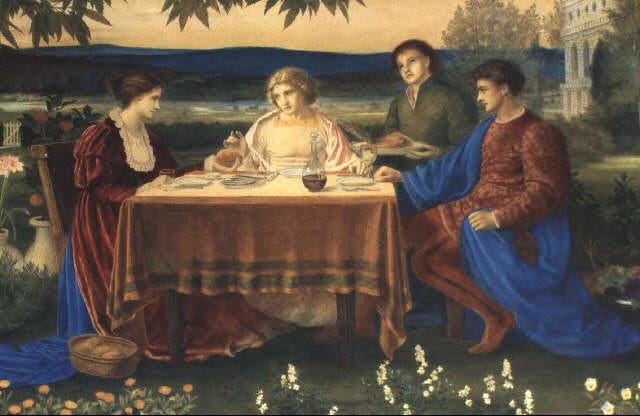Dad,
I’ll go this far with the Pharisees: one day, it’ll turn out orthodoxy was right all along. When the hand of love pulls back the veil of death from our eyes, the gaze that meets ours will startle us out of all error. In the blaze of that countenance, I believe, every clanking formula and moldy saying of the tired church will stand revealed as perfectly, simply, and obviously true. Triune God, virgin-born, spotless lamb: Of course it’s this way, we’ll think. It could never have been otherwise. On this much, you and I and the Pharisees are all agreed.
Where we differ is that the Pharisees seem to think we’re the only ones who’ll be surprised. For them the afterlife will be one big I told you so, while the rest of us stand agog in varying degrees of stupefaction and wonderment.
And it might just turn out exactly like that. I wish them well in their in their frozen eternity of Having Been Right; myself, I’ll take the perpetual wonder of Being Alive. Because look, I remember high school too, and I’ll admit it was very satisfying to hear the teacher read out all the correct answers (i.e., mine) on the quiz. There might well be a place where that smirking thrill of one-upsmanship goes on into forever. I just don’t think it’s where you want to be.
In the good place, even those of us who knew all the right creeds by heart will be astonished to see them embodied in the living image of the invisible God. Already in this life there are times when rote theology falls murky on the ears, and moments of inspiration when the very same words ring pure and clear as if we were hearing them for the first time. What I’m talking about, basically, is the spirit that breathes life into dead letters. It blows where it pleases, and none of us is entitled to tell it where it is going.
A few years ago I pointed out in a homily that even the saved in Jesus’ parables often express bewilderment and shock to learn the nature of their salvation. The usual suspects insisted that this only applies to those who were saved before the incarnation and the gospel—whereas now, the elect are all caught up.
I can’t see where they get that in the text, or what the point would be of Jesus telling his disciples about it if it only applied to people who were already dead. For that matter I can’t see what the point would be of letting history drag on after all there is to know about God had been exhaustively communicated.
But the question answers itself: a God who can be exhaustively known by any finite creature is an absurdity, no God at all. “Don’t neglect to entertain strangers, for in so doing some have entertained angels unawares” (emphasis mine). Even when you know God’s name, he comes forever in disguise.
Love,
Spencer






Gentlemen, I sincerely hope that your plan is to print all these wonderful letters into a volume that can sit on my shelf next to my favorite chair. The rich prose, with, common sense, and passion with which they are written have made them my morning devotional. It is uplifting and affirming to read your back and forth every morning; even where I may disagree with some theological points the direction you take your readers is undeniably toward the righteousness that I think God yearns for us to have. Thank you so much for cutting through the gloom of the world to entice us to see the joy to come.
Yes - a morning devotional precisely, Joe.
I love that one can be a full participant in orthodoxy while still maintaining that childlike hope, wonderment, and excitement for what is to come. It is far too often abandoned in orthodoxy because of the comfort of “knowing.” A gospel of joy, indeed, is a beautiful approach.